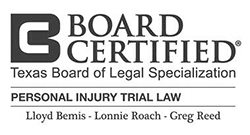Autoimmune Disorders and Qualifying for Social Security Disability Benefits
Can I get disability benefits if I am suffering from the effects of an Immune System Disorder?
Author: Attorney Greg Reed
Updated: 11/22/2023
An immune system disorder is the result of abnormally low activity of the immune system or overactivity of the immune system. In cases of overactivity, the body attacks its own tissues; these conditions are called autoimmune diseases.
If you are suffering from the effects of an Immune System Disorder you may qualify for disability benefits.

The Social Security Administration recognizes autoimmune disorders in their Bluebook under Section 14 so if it has impacted your ability to work you may qualify for disability benefits. Call (512) 454-4000 for help today.
Inflammatory arthritis, lupus, inflammatory bowel disease and Type 1 diabetes mellitus are examples of autoimmune diseases.
Immune deficiency diseases, such as AIDS and Severe Acute Respiratory Syndrome (SARS), decrease the body’s ability to fight toxins and infections. Immune system disorders can cause recurrent infections or dysfunction of the body’s organs and tissues that affect a single organ or two or more organs, resulting in moderate to severe limitations and loss of function. Classic symptoms of immune system disorders include fever, fatigue, musculoskeletal pain, malaise and involuntary weight loss.
Qualifying for Disability with an Autoimmune Disorder
The Social Security Administration lists a diverse group of medical conditions under Section 14.00 Immune System Disorders in its Blue Book. Under this listing Social Security evaluates immune system disorders that cause dysfunction in one or more parts of the immune system.
Social Security organizes these immune system disorders into three categories: autoimmune disorders, immune deficiency disorders (excluding HIV), and HIV.
- An autoimmune disorder is caused by dysfunctional responses directed against the body’s own tissues resulting in chronic, multisystem impairments that differ in severity and outcome.
- An immune deficiency disease (that is not HIV) is characterized by unusual or recurrent infections that do not respond well to treatment and are often connected to complications impacting other body organs. An immune deficiency disorder may be primary, existing from birth or inherited, or acquired, meaning the condition is the result of other circumstances. Those circumstances may be medications, treatments, or diseases that have suppressed the immune system or damaged it. Examples include diseases such as chicken pox or treatments like chemotherapy.
- Human immune deficiency virus (HIV) is a condition marked by increased susceptibility to infections and cancers.
Contact a Social Security disability attorney at 512-454-4000 for a free consultation and see if you can get disability benefits while suffering from an Immune System Disorder. If you have been denied disability don’t give up!
Within these three categories, Social Security lists a number of conditions as immune system disorders that automatically qualify for Social Security Disability Income, provided the applicant meets the specific criteria stated in the impairment listing as well as Social Security’s non-medical requirements.
These conditions include:
- Systemic lupus erythematosus (14.02)
- Systemic vasculitis (14.03)
- Systemic sclerosis or scleroderma (14.04)
- Polymyositis or dermatomyositis (14.05)
- Undifferentiated mixed connective tissue disease (14.06)
- Immune deficiency disorders (excluding (HIV) (14.07)
- Inflammatory arthritis (14.09)
- Sjögren’s syndrome (14.10)
- Human immunodeficiency virus (HIV) infection. (14.11)
Social Security evaluates each disorder differently and requires different documentation as evidence of a disease.
While some requirements are similar or the same for some impairments, each disorder listed under Section 14.00 has specific criteria which must be met to qualify for disability benefits.
Immune Deficiency Disorders (Excluding HIV)
An applicant who has an immune deficiency disorder that is not HIV (14.07) must show evidence of one of the following:
- Sepsis, meningitis, pneumonia, septic arthritis, endocarditis, or sinusitis that does not respond to treatment or requires hospitalization more than three times per year;
- Evidence of a recurring immune deficiency disorder and two severe illness symptoms, as well as proof that the condition keeps you from working and performing daily activities; or
- If undergoing a stem cell transplant, the applicant will qualify for one year after the procedure. After one year, Social Security will reevaluate the case to determine if the treatment was successful and if the applicant is still disabled.
Lupus, Systemic Vasculitis, Sjögren’s Syndrome and Undifferentiated and Mixed Connective Tissue Disease
Applicants with systemic lupus erythematosus, systemic vasculitis, Sjögren’s syndrome, or undifferentiated and mixed connective tissue disease must provide proof of the following:
- Involvement of two or more organs/body systems, with:
- One of the organs/body systems involved to at least a moderate level of severity; and
- At least two of the constitutional symptoms or signs (severe fatigue, fever, malaise, or involuntary weight loss).
- Repeated manifestations of the immune system disease, with at least two of the constitutional symptoms or signs (severe fatigue, fever, malaise, or involuntary weight loss) and one of the following at the marked level:
- Limitation of activities of daily living.
- Limitation in maintaining social functioning.
- Limitation in completing tasks in a timely manner due to deficiencies in concentration, persistence, or pace.
OR
Polymyositis and Dermatomyositis
For claimants filing with polymyositis or dermatomyositis the criteria is more extensive:
- Pelvic or shoulder muscle weakness and medical documentation of at least one of the following:
- A documented medical need for a walker, bilateral canes, or bilateral crutches or a wheeled and seated mobility device involving the use of both hands; or
- An inability to use one upper extremity to independently initiate, sustain, and complete work-related activities involving fine and gross movements, and a documented medical need for a one-handed, hand-held assistive device that requires the use of the other upper extremity or a wheeled and seated mobility device involving the use of one hand; or
- An inability to use both upper extremities to the extent that neither can be used to independently initiate, sustain, and complete work-related activities involving fine and gross movements;
- Difficulty swallowing due to muscle weakness that causes aspiration into the lungs.
- Breathing difficulties due to a weak diaphragmatic and intercostal muscles.
- Calcium deposits that with limit of joint mobility or intestinal function.
- Repeated manifestations of polymyositis or dermatomyositis, with at least two of the constitutional symptoms or signs (severe fatigue, fever, malaise, or involuntary weight loss) and one of the following at the marked level:
- Limitation of activities of daily living.
- Limitation in maintaining social functioning.
- Limitation in completing tasks in a timely manner due to deficiencies in concentration, persistence, or pace.
OR
OR
OR
OR
Scleroderma, Inflammatory Arthritis and HIV
For Social Security’s specific requirements for scleroderma, inflammatory arthritis or HIV, please see our separate pages on those disorders.
Note that some medical conditions which may be considered autoimmune disorders, such as multiple sclerosis (MS) or Type 1 diabetes mellitus, are not included in Section 14.00, but can be found under different listings in Social Security’s Blue Book.
Though Social Security states that it will make its best effort to obtain medical records, a claimant should provide the following with their application:
- Compete medical history
- Report of physical examination;
- Laboratory results
- Imaging (angiography, x-rays, CAT, MI, bone scan)
- Tissue biopsy
If your immune system disorder does not meet the requirements of Social Security’s listing, you may still be eligible for Social Security Disability benefits.
Many individuals with immune system disorders show symptoms of another mental or physical impairment. For example, lupus can impact the heart or kidneys. Social Security must consider how those health issues, combined together, limit an applicant’s ability to hold a job and perform necessary daily tasks. Social Security will conduct a residual functional capacity assessment (RFC) to evaluate your abilities and limitations to determine if you are capable of performing your prior job or any other type of work. Social Security will then consider your medical records and doctors’ statements of how symptoms limit your ability to function, as well as side effects of treatment.
If you are 55 or older you may get approval.
Social Security follows a set of rules to determine when the agency expects an applicant to learn a new job.
Applicants who are 55 or older often fall under a grid rule, which means they are not expected to learn a new job. For example, a 55-year-old applicant with no transferable skills might be found disabled. If you can’t go back to your old job, and you don’t have the skills to learn a new one, Social Security will likely grant you disability benefits.
Social Security also has basic financial requirements.
You must satisfy some basic financial requirements before you are eligible for Social Security disability benefits.
You must: 1) have a disability that has lasted or is expected to last 12 months; and 2) you must have worked in a job where you paid Social Security taxes long enough and recently enough; and 3) you must not earn more than Substantial Gainful Activity (SGA), which is $1,550 per month in 2024 for nonblind applicants and $2,590 per month for blind applicants.
What if I don’t qualify for SSDI?
if you earn too much income, or if you haven’t worked long enough to earn enough work credits, you may be eligible for disability benefits through another Social Security program, such as Supplemental Security Income (SSI), or from a long-term disability insurance plan through your employer or a privately purchased policy.
SSI is a program that pays monthly benefits to people with limited income and resources who are disabled, blind, or age 65 or older. SSI is based on income instead of work credits, and is financed by general funds of the U.S. Treasury.
I have long-term disability insurance – should I file a claim?
Yes, you should file a claim as soon as you become disabled.
Long-term disability insurance (LTD) coverage protects your income if you are unable to work due to illness or injury and is purchased as part of a group employment plan or privately through an insurance company. Policies pay between 50-60% of your salary and benefits continue until you return to work or for the number of years stated in the policy. But do not quit your job before you file a claim because LTD coverage is good only as long as you are employed, and be sure to check your policy’s definition of “disabled” as each policy will state the definition of “disabled” which is in use. Additionally, be aware that long-term disability insurance companies can require a claimant to also apply for SSDI.
How do I file for Social Security Disability benefits?
You can apply for Social Security Disability benefits online, over the phone, or in person at your local Social Security Administration office.
If your initial application is denied, don’t be discouraged – most are – and you will have the opportunity to appeal.
There are four steps to the Social Security appeal process:
- File a Request for Reconsideration with the Social Security Administration to completely review the case.
- If you don’t agree with SSA’s response to your Request for Reconsideration, you can request a hearing before an Administrative Law Judge (ALJ). ALJs are attorneys who work for the Social Security Administration; they review SSDI cases and either uphold or overturn decisions to deny SSDI benefits. If you are not represented by an attorney at this point, now is the time to obtain legal counsel. This is a critical point in the process and will raise your chance for success.
- If an ALJ does not grant your claim, you can request that the Appeals Council review your case.
- Federal Court review. The final step in the appeal process is filing suit in U.S. District Court.
.
Do I need a disability attorney for SSDI?
Filing for SSDI with chronic pain syndrome presents challenges because the cause and severity of pain is often difficult to ascertain. Initial claims are often denied.
Your best chance for success is to consult a qualified disability attorney who can review your case, gather the medical evidence you need and avoid needless mistakes that may delay the process. At each potential stage of the process, from the initial application stage, the reconsideration stage and the ALJ hearing stage, an attorney can assist you in completing the detailed forms and questionnaires required by Social Security, collecting and submitting relevant medical evidence, and preparing questionnaires for your doctors. At the ALJ hearing phase an attorney will not only continue to assure that the evidence is complete, but prepare you for questioning by the ALJ, prepare an argument on your behalf and question any doctors or vocational experts selected by the ALJ to testify at the hearing. At the Appeals Council and federal court level, a lawyer can present legal arguments to show your case was wrongfully denied. Fees charged by disability attorneys are regulated by federal law and are usually 25% of disability backpay you are owed. There are no out-of-pocket costs, and if you don’t win your case, you won’t be charged anything.
Do I need a disability attorney for a long-term disability insurance claim?
It doesn’t matter if you have a long-term disability insurance policy purchased through a private insurance broker or a group policy purchased with your employer, filing a claim for long-term insurance is a complex process.
In addition to the problem of proving that pain is disabling, the wording of LTD policies can be confusing and the laws and regulations which affect the two types of LTD insurance differ in their procedures for filing claims and appeals. An experienced LTD attorney with thorough knowledge of ERISA laws and regulations will avoid mistakes and increase your chance of success. An attorney will act on your behalf, completing your application and filing your claim in a timely manner. They can also negotiate a settlement or file an appeal for you. If it becomes necessary to file suit, an LTD attorney can prepare your case against an insurer. Most LTD attorneys handle cases on a contingency basis and charge approximately 25%-40% of a claimant’s past due benefits. You do not pay an attorney’s fee unless the attorney wins your case.
If you have been diagnosed with an immune system disorder and you are unable to work, you may be eligible for Social Security Disability Income.
But filing for disability benefits can easily become frustrating. An experienced Social Security Disability attorney can review your case, gather the medical evidence you need and avoid needless mistakes that may delay the process.
Disability benefits are an important source of income for those who are unable to work. If you are not able to work due to accident or illness, you may be eligible for Social Security Disability or Long Term Disability benefits. If you have applied for benefits and been denied, contact the attorneys at Bemis, Roach and Reed for a free consultation. Call 512-454-4000 and get help NOW.
Psoriasis and Psoriatic Arthritis
Diabetes and Disability Benefits
Lupus and qualifying for disability benefits
Author: Attorney Greg Reed has been practicing law for 29 years. He is Superlawyers rated by Thomson Reuters and is Top AV Preeminent® and Client Champion Gold rated by Martindale Hubbell. Through his extensive litigation Mr. Reed obtained board certification from the Texas Board of Legal Specialization. Greg is admitted to practice in the United States District Court – all Texas Districts and the United States Court of Appeals-Fifth Circuit. Mr. Reed is a member of the Travis County Bar Association, Texas Trial Lawyers Association, past Director of the Capital Area Trial Lawyers Association, and an Associate member of the American Board of Trial Advocates. Mr. Reed and all the members of Bemis, Roach & Reed have been active participants in the Travis County Lawyer referral service.
Your Free Initial Consultation
At Bemis, Roach and Reed, if we can't help you, we will try to find the right attorneys for you.
We offer each of our prospective clients a free no obligation one hour phone or office consultation to see if we can help you and if you are comfortable with us. We know how difficult a time like this can be and how hard the decisions are. If we can be of assistance to you and help you find a solution to your issue we will even if that means referring you to another attorney.
Or simply call
512-454-4000
to schedule your
Free Consultation
Let's get you Started:
If you could provide us with some basic information about your claim we will get right back with you with a free case evaluation and schedule your Free Consultation Today.










